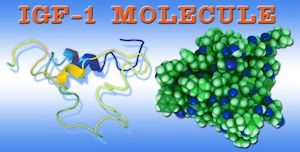Introduction
Chronic illnesses can have a profound impact on various aspects of health, including sexual function and anatomy. For American males, understanding these effects is crucial for managing their overall well-being. This article delves into the specific issue of penis shrinkage, a concern that can arise from certain chronic conditions, and provides insights into its causes, implications, and potential management strategies.
The Link Between Chronic Illness and Penis Shrinkage
Chronic illnesses such as diabetes, cardiovascular diseases, and kidney disease can lead to a variety of complications, one of which may be penis shrinkage. This phenomenon, medically known as penile atrophy, can be distressing and affect a man's self-esteem and sexual health. The underlying mechanisms often involve poor blood circulation, nerve damage, and hormonal imbalances, all of which can be exacerbated by chronic conditions.
Diabetes and Its Role
Diabetes is a prevalent chronic illness among American males and is a significant contributor to penis shrinkage. High blood sugar levels can damage blood vessels and nerves, leading to reduced blood flow to the penis. This can result in erectile dysfunction and, over time, may cause the penile tissue to shrink. Additionally, diabetes can lead to hormonal disruptions, further complicating the issue.
Cardiovascular Diseases and Blood Flow
Cardiovascular diseases, another common chronic condition, can also impair blood flow to the penis. Atherosclerosis, the buildup of plaques in the arteries, can restrict blood flow, leading to insufficient oxygen and nutrient supply to penile tissues. This can cause the tissues to atrophy, resulting in a decrease in penis size.
Kidney Disease and Hormonal Imbalances
Chronic kidney disease can lead to hormonal imbalances, particularly affecting testosterone levels. Low testosterone can contribute to penis shrinkage by reducing the overall size and function of the penis. Furthermore, the accumulation of toxins due to impaired kidney function can exacerbate the problem by causing further damage to penile tissues.
Psychological Impact and Quality of Life
The psychological impact of penis shrinkage should not be underestimated. Many men experience significant distress, which can lead to anxiety, depression, and a diminished quality of life. Addressing these psychological aspects is crucial for comprehensive management of the condition.
Management and Treatment Options
Managing penis shrinkage involves addressing the underlying chronic illness and its symptoms. For diabetes, maintaining optimal blood sugar levels through diet, exercise, and medication can help mitigate the risk of penile atrophy. Similarly, managing cardiovascular health through lifestyle changes and medical interventions can improve blood flow to the penis.
Hormone replacement therapy may be considered for men with low testosterone levels due to chronic kidney disease or other conditions. Additionally, psychological support and counseling can be beneficial in helping men cope with the emotional impact of penis shrinkage.
Preventive Measures
Preventive measures are essential for American males at risk of chronic illnesses. Regular health check-ups, maintaining a healthy lifestyle, and managing chronic conditions effectively can help prevent or minimize the risk of penis shrinkage. Awareness and education about the potential effects of chronic illnesses on sexual health are also crucial.
Conclusion
Penis shrinkage is a serious concern for American males with chronic illnesses such as diabetes, cardiovascular diseases, and kidney disease. Understanding the link between these conditions and penile atrophy is the first step towards effective management. By addressing the underlying causes, seeking appropriate medical and psychological support, and adopting preventive measures, men can better manage this condition and maintain their overall sexual health and well-being.
Contact Us For A Fast And Professional Response

- Unveiling Andropause: Understanding Male Menopause and Its Effects on Penile Size [Last Updated On: February 21st, 2025] [Originally Added On: February 21st, 2025]
- Penile Atrophy: Causes, Early Signs, and Management Strategies for American Males [Last Updated On: February 22nd, 2025] [Originally Added On: February 22nd, 2025]
- Decoding Men's Health: The True Story About Penis Shrinkage [Last Updated On: February 25th, 2025] [Originally Added On: February 25th, 2025]
- Decoding Masculinity: A Comprehensive Insight into Penile Reduction and Its Triggers [Last Updated On: February 26th, 2025] [Originally Added On: February 26th, 2025]
- Transcending Time: Understanding the Evolution of Male Physicality Throughout the Aging Journey [Last Updated On: February 27th, 2025] [Originally Added On: February 27th, 2025]
- Decoding the Medical Mystery: The Nexus between Hormones, Health, and Penile Contraction [Last Updated On: February 28th, 2025] [Originally Added On: February 28th, 2025]
- Relevance of Lifestyle Choices: Unraveling the Interplay of Weight, Diet and Penis Size [Last Updated On: February 28th, 2025] [Originally Added On: February 28th, 2025]
- Dismantling Myths: A Candid Discussion on Penis Shrinkage [Last Updated On: March 1st, 2025] [Originally Added On: March 1st, 2025]
- Understanding the Psychological Connection: Stress, Anxiety, and Penis Health [Last Updated On: March 2nd, 2025] [Originally Added On: March 2nd, 2025]
- Exploring Testosterone's Comprehensive Role in Determining Body Size: Impacts on Muscle Mass, Fat Distribution, and Bone Density [Last Updated On: March 3rd, 2025] [Originally Added On: March 3rd, 2025]
- Understanding Post-Prostate Surgery Penile Shrinkage and Management Strategies [Last Updated On: March 4th, 2025] [Originally Added On: March 4th, 2025]
- Exercise's Role in Male Sexual Health and Preventing Penile Shrinkage [Last Updated On: March 5th, 2025] [Originally Added On: March 5th, 2025]
- Understanding Blood Flow's Role in Erectile Function and Penile Size [Last Updated On: March 6th, 2025] [Originally Added On: March 6th, 2025]
- The Impact of Smoking and Alcohol on Male Sexual Health: Lifestyle Factors Explained [Last Updated On: March 7th, 2025] [Originally Added On: March 7th, 2025]
- Unveiling the Truth: Myths and Realities of Penis Shrinkage Explained Professionally [Last Updated On: March 8th, 2025] [Originally Added On: March 8th, 2025]
- The Interplay of Chronic Illness and Genital Health: Implications and Management Strategies [Last Updated On: March 9th, 2025] [Originally Added On: March 9th, 2025]
- Unraveling the Truth: Genetics, Lifestyle, and the Phenomenon of Penis Shrinkage in American Males [Last Updated On: March 11th, 2025] [Originally Added On: March 11th, 2025]
- Diabetes and Its Shrinking Effect: Understanding Metabolic Consequences in American Males [Last Updated On: March 12th, 2025] [Originally Added On: March 12th, 2025]
- Unveiling the Truth: Environmental Toxins and Their Potential Impact on Male Genital Health [Last Updated On: March 13th, 2025] [Originally Added On: March 13th, 2025]
- Exploring Global Variations in Penile Dimensions: Insights and Implications for American Males [Last Updated On: March 15th, 2025] [Originally Added On: March 15th, 2025]
- High Blood Pressure's Impact on Penile Health and Size in American Males [Last Updated On: March 17th, 2025] [Originally Added On: March 17th, 2025]
- Obesity's Impact on Male Genital Health: Understanding Penis Shrinkage and Solutions [Last Updated On: March 18th, 2025] [Originally Added On: March 18th, 2025]
- Natural Remedies for Penis Shrinkage: Herbs, Supplements, and Holistic Approaches [Last Updated On: March 18th, 2025] [Originally Added On: March 18th, 2025]
- Nutrition's Role in Enhancing Penile Health and Preventing Shrinkage [Last Updated On: March 19th, 2025] [Originally Added On: March 19th, 2025]
- Inflammation and Oxidative Stress: Hidden Causes of Penis Shrinkage in Men [Last Updated On: March 20th, 2025] [Originally Added On: March 20th, 2025]
- Hormonal Imbalances and Penis Shrinkage: Causes, Effects, and Management in American Males [Last Updated On: March 20th, 2025] [Originally Added On: March 20th, 2025]
- Chronic Stress, Cortisol, and Their Impact on Male Genital Health [Last Updated On: March 21st, 2025] [Originally Added On: March 21st, 2025]
- Understanding Penile Shrinkage: Normal Aging vs. Medical Concerns in American Men [Last Updated On: March 21st, 2025] [Originally Added On: March 21st, 2025]
- Peyronie's Disease: Understanding Causes, Penis Shrinkage, and Treatment Options [Last Updated On: March 21st, 2025] [Originally Added On: March 21st, 2025]
- Weight Loss Reverses Penile Shrinkage in Obese Men: Evidence and Health Implications [Last Updated On: March 21st, 2025] [Originally Added On: March 21st, 2025]
- Prostate Health and Penis Size: Understanding Shrinkage and Management Strategies [Last Updated On: March 21st, 2025] [Originally Added On: March 21st, 2025]
- Sleep Disorders and Penis Shrinkage: Impact on American Men's Sexual Health [Last Updated On: March 22nd, 2025] [Originally Added On: March 22nd, 2025]
- Sedentary Lifestyles and Penis Shrinkage: Mechanisms, Impacts, and Preventive Measures for American Males [Last Updated On: March 22nd, 2025] [Originally Added On: March 22nd, 2025]
- Anti-Inflammatory Diets: A Key to Preventing Penile Shrinkage in American Males [Last Updated On: March 22nd, 2025] [Originally Added On: March 22nd, 2025]
- Strategies to Prevent Penis Shrinkage: Diet, Exercise, and Lifestyle Changes [Last Updated On: March 22nd, 2025] [Originally Added On: March 22nd, 2025]
- Relationship Dynamics and the Psychology of Perceived Penis Shrinkage in American Males [Last Updated On: March 22nd, 2025] [Originally Added On: March 22nd, 2025]
- Understanding Penis Size: Measurement Techniques and Shrinkage Factors in American Males [Last Updated On: March 22nd, 2025] [Originally Added On: March 22nd, 2025]
- Natural Testosterone Boosters: Foods and Exercises to Combat Penis Shrinkage in American Males [Last Updated On: March 23rd, 2025] [Originally Added On: March 23rd, 2025]
- Understanding Penis Size: Measurement, Shrinkage, and Medical Insights for American Males [Last Updated On: March 23rd, 2025] [Originally Added On: March 23rd, 2025]
- Understanding Penile Atrophy: Causes, Impacts, and Breaking the Stigma [Last Updated On: March 23rd, 2025] [Originally Added On: March 23rd, 2025]
- Managing Penis Shrinkage in Aging Men: Causes, Impacts, and Strategies [Last Updated On: March 24th, 2025] [Originally Added On: March 24th, 2025]
- Penile Atrophy in American Males: Causes, Detection, and Management Strategies [Last Updated On: March 24th, 2025] [Originally Added On: March 24th, 2025]
- Medications Linked to Penile Shrinkage: A Comprehensive Guide for American Males [Last Updated On: March 24th, 2025] [Originally Added On: March 24th, 2025]
- Metabolic Syndrome Linked to Penis Shrinkage: Vascular Health and Preventive Measures [Last Updated On: March 24th, 2025] [Originally Added On: March 24th, 2025]
- Androgens and Penis Health: Understanding Shrinkage and Maintaining Androgen Levels [Last Updated On: March 24th, 2025] [Originally Added On: March 24th, 2025]
- Meditation and Stress Reduction: Enhancing Penis Health and Preventing Shrinkage [Last Updated On: March 25th, 2025] [Originally Added On: March 25th, 2025]
- Preventing Penile Shrinkage: Enhancing Vascular Health in American Males [Last Updated On: March 25th, 2025] [Originally Added On: March 25th, 2025]
- Coping with Perceived Penis Shrinkage: Psychological Strategies for American Males [Last Updated On: March 25th, 2025] [Originally Added On: March 25th, 2025]
- Weight Fluctuations and Penis Size: Understanding Shrinkage in American Males [Last Updated On: March 25th, 2025] [Originally Added On: March 25th, 2025]
- HRT and Penis Size: Insights for American Males on Shrinkage Prevention [Last Updated On: March 25th, 2025] [Originally Added On: March 25th, 2025]
- Understanding Penile Shrinkage: Causes, Treatments, and Lifestyle Management [Last Updated On: March 25th, 2025] [Originally Added On: March 25th, 2025]
- Smoking and Penis Shrinkage: Impacts and Recovery Strategies for American Males [Last Updated On: March 25th, 2025] [Originally Added On: March 25th, 2025]
- Alcohol Consumption and Penis Size: The Importance of Moderation in Men's Health [Last Updated On: March 25th, 2025] [Originally Added On: March 25th, 2025]
- Understanding Penile Atrophy: Causes, Diagnosis, and Management Strategies for American Males [Last Updated On: March 26th, 2025] [Originally Added On: March 26th, 2025]
- Exploring Links Between Penis Shrinkage and Erectile Dysfunction: Causes and Treatments [Last Updated On: March 26th, 2025] [Originally Added On: March 26th, 2025]
- Cardiovascular Fitness: Key to Enhancing Penile Health and Preventing Shrinkage [Last Updated On: March 27th, 2025] [Originally Added On: March 27th, 2025]
- Preventing Penile Shrinkage: Causes, Hormones, and Lifestyle Strategies for American Males [Last Updated On: March 27th, 2025] [Originally Added On: March 27th, 2025]
- Chronic Inflammation's Role in Penis Shrinkage: Cellular Mechanisms and Preventive Strategies [Last Updated On: March 27th, 2025] [Originally Added On: March 27th, 2025]
- American Men's Journeys with Penile Atrophy: Causes, Coping, and Recovery [Last Updated On: March 27th, 2025] [Originally Added On: March 27th, 2025]
- Understanding Penis Shrinkage: Causes, Effects, and Solutions for American Males [Last Updated On: March 27th, 2025] [Originally Added On: March 27th, 2025]
- Understanding Penile Health: Function, Sensation, and Addressing Shrinkage Concerns [Last Updated On: March 27th, 2025] [Originally Added On: March 27th, 2025]
- Vascular Surgery: Enhancing Penile Health and Treating Shrinkage in American Males [Last Updated On: March 28th, 2025] [Originally Added On: March 28th, 2025]
- Genetics and Penis Size: Variability, Shrinkage, and American Male Insights [Last Updated On: March 28th, 2025] [Originally Added On: March 28th, 2025]
- Understanding and Treating Penis Shrinkage: Advances in Urology [Last Updated On: March 28th, 2025] [Originally Added On: March 28th, 2025]
- Exercise Mitigates Age-Related Penile Shrinkage in American Males: A Comprehensive Guide [Last Updated On: March 28th, 2025] [Originally Added On: March 28th, 2025]
- Environmental Pollution's Impact on Male Reproductive Health and Penis Size in America [Last Updated On: March 28th, 2025] [Originally Added On: March 28th, 2025]
- Emerging Therapies for Penis Shrinkage: A Comprehensive Overview [Last Updated On: March 28th, 2025] [Originally Added On: March 28th, 2025]
- Sleep Quality's Role in Preventing Penile Shrinkage: Insights for American Males [Last Updated On: March 29th, 2025] [Originally Added On: March 29th, 2025]
- Chronic Diseases and Penis Shrinkage: Impacts and Management Strategies for American Males [Last Updated On: March 29th, 2025] [Originally Added On: March 29th, 2025]
- Guide to Accurate Penis Measurement and Addressing Shrinkage Concerns [Last Updated On: March 30th, 2025] [Originally Added On: March 30th, 2025]
- Psychological Support for American Men Facing Perceived Penis Shrinkage [Last Updated On: March 30th, 2025] [Originally Added On: March 30th, 2025]
- Understanding Penis Shrinkage: Causes, Impacts, and Solutions for American Males [Last Updated On: April 2nd, 2025] [Originally Added On: April 2nd, 2025]
- Andropause: Understanding Male Menopause and Penis Shrinkage Effects [Last Updated On: April 2nd, 2025] [Originally Added On: April 2nd, 2025]
- Superfoods Boost Vascular Health, May Prevent Penis Shrinkage in American Males [Last Updated On: April 5th, 2025] [Originally Added On: April 5th, 2025]
- Understanding Penis Shrinkage: Causes, Management, and Importance of Regular Check-ups [Last Updated On: April 5th, 2025] [Originally Added On: April 5th, 2025]
- Supplements and Penis Health: Evaluating Claims and Holistic Approaches [Last Updated On: April 5th, 2025] [Originally Added On: April 5th, 2025]
- Hormonal Health and Penis Size: Understanding and Prevention Strategies for American Males [Last Updated On: April 6th, 2025] [Originally Added On: April 6th, 2025]
- Chronic Stress and Penile Health: Understanding Impacts and Managing Stress Effectively [Last Updated On: April 8th, 2025] [Originally Added On: April 8th, 2025]
- Cardiovascular Exercise: Key to Preventing Penis Shrinkage in American Males [Last Updated On: April 9th, 2025] [Originally Added On: April 9th, 2025]
- Urological Procedures and Their Impact on Penis Size: A Comprehensive Guide for Men [Last Updated On: April 9th, 2025] [Originally Added On: April 9th, 2025]

















